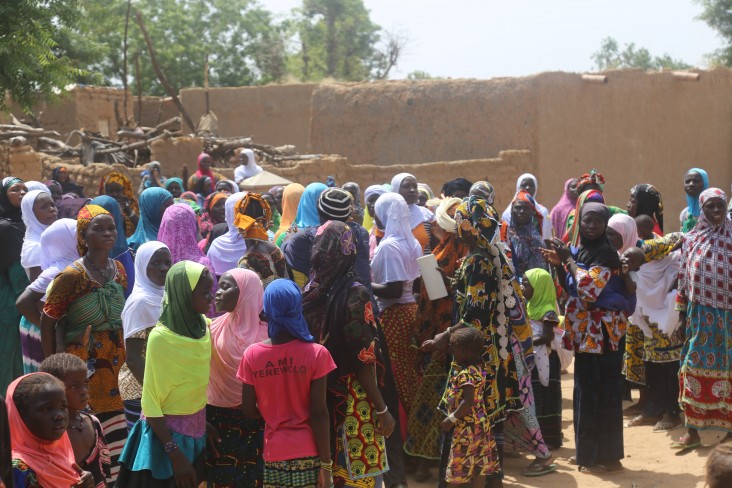Speeches Shim

"Thanks to USAID, women are increasingly coming out of their silence to challenge abusers. Nowadays, we observe that men are gradually communicating with women. There is a perceptible change in the way they view gender roles." - Mahamadou Mariko
AC* is a 41-year-old woman working in a manufacturing company in Koulikoro, just outside of Mali’s capital, Bamako. Pregnant with her third child, she was laid-off and her supervisor said it was due to Coronavirus related financial constraints. Just one month later, AC found out from a former colleague that the company had hired a new staff person to replace her. AC was shocked and dismayed.
She decided to seek advice from a legal aid clinic run by Women in Law and Development Africa (WILDAF), a USAID Mali local partner. WILDAF explained that under Malian law her employer could dismiss her for financial reasons but hiring someone to replace her is not allowed and constitutes wrongful termination. In this case, she was presumably laid off due to pregnancy, which also violates Mali’s employment law against discrimination.
Gender-based violence (GBV) and discrimination are major problems in Mali. In 2018, 24% of Women in Koulikoro experienced violence, the highest percentage of any region in Mali.** To reduce the prevalence of GBV and discrimination, WILDAF established the Koulikoro Regional Consultation Framework to Combat Violence Against Women, a stakeholders’ group comprised of local law enforcement, the courts, the regional directorate for the promotion of women, women’s rights organizations, the regional youth council, and traditional and religious leaders. This regional body develops anti-GBV strategies and early warning mechanisms to reduce and eliminate injustices suffered by women in the Region.
AC took her case to the regional body and was referred to court. The judge ruled in her favor and her employer was given the choice of either reinstating her or paying damages. In the end, AC got her job back. According to AC, “When the paralegal helped me go to court, I half-heartedly agreed because I know women who have lost their jobs just for taking breaks, breastfeeding, or asking for leave because their child is sick. I now understand that we have rights and must exercise them even if we have doubts about our claim.”
With support from the American people, the USAID Mali Justice Project assists twelve legal aid clinics like the one that helped AC and has reached over 1,800 women with direct legal services since the project began in 2016. The USAID Mali Justice Project helps the justice sector and civil society to advance institutional reforms, increase access to justice, reduce corruption and enhance delivery of justice services.
* Name has been changed to ensure privacy
** Demographic and Health Survey (DHS, 2018)

Comment
Make a general inquiry or suggest an improvement.